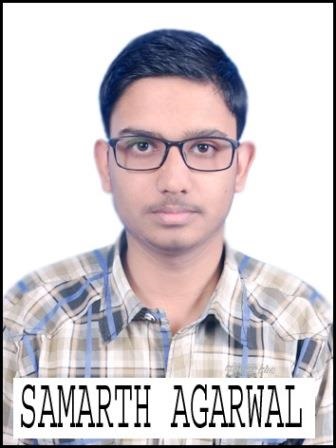Shape your future and crack GATE with these tips
By: Samarth Agarwal
One needs to prepare for any competitive exam with complete dedication and diligence. Explore the options and practise with the focus to reach the desired goals.
After graduation, every student wants a good package in a reputed company. By the end of the undergraduate program, the student often has two roads - job or higher studies. However, there is a third back-up option too, which is dropping a year for the preparation of competitive exams or enhancing skills as per the market scenario.
Some of the students take a year drop for further preparation of exams after graduation. There are several options available for students in both the corporate sector and government sector whether for studies or job.
The best way a fresher candidate could get a job in govt. an organisation or a seat in an education institute just after graduation is through GATE (Graduate Aptitude Test Engineering). There are numerous PSUs (Public Sector Undertakings) which recruit candidate based on GATE scorecard, these PSUs belongs to Maharatna to Mini-Ratna such as BHEL, GAIL, IOCL, SAIL, etc.
Similarly, in the education field, colleges are ranging from IISc, IIST, IISER to NITs and CFTIs which accepts GATE score. These institutes have their admission criteria which one needs to fulfil at the time of applying for the course. Through GATE, a candidate securing 90 percentile or above may even go for foreign universities. Some of the universities that accept GATE score are National University of Singapore (NUS), Nanyang Technological University (NTU), Technical University of Munich (TUM) which is established in Germany, RWTH Aachen University situated in Germany. However, these universities require English Proficiency Exams scores such as IELTS, TOEFL, etc.
To qualify for GATE, a minimum of one year for the preparation is required.
Every GATE aspirant could start their preparation in the college after the lectures. Practise two subjects at a time this would depend on the comfort level of the student. It’s better to take an ongoing subject of the semester as this would help in clarifying the doubts with the faculty.
Firstly, prepare and clear the concepts thoroughly from the standard books then go for mock tests of the same subject. Initially, set a time for three hours daily for a week or two and then increase the time limit as required. Also, revise the notes in their free time. This process would help in covering at least six to seven subjects in ten months.
It is important to take breaks in between the preparation as this would help in relaxing the mind and body and enhancing focus. Take mock tests daily in the last week of the scheduled exam.
On the day of the examination, stay focused, positive and confident. Try not to compare or discuss the preparation with others.
Students need not to worry if they secure low scores in the first attempt. There are several colleges like CFTIs or NITs which select the candidate with low GATE marks and good under graduation marks. There are various organisations in the government sector which recruit Junior Research Fellowship (JRF) for a short term. Also, IITs, IIITS and even IISC recruits JRF, as these institutes have various govt. projects to be completed within the time frame.
Hence, they require a candidate who has qualified the GATE exam with a good academic record in terms of percentage, project, or some publication in good journals would be counted as a bonus point. To get selected, one needs to be aware of the ongoing recruitment and admissions. The candidates who have prepared for the GATE exam need not to worry about the written test or interviews. They just need to prepare for their project or publication (if any). After getting into one of these govt. organisations as a JRF then they might offer a seat in their full-time course based on one’s performance and dedication.
One could also go for private-sector technical institutes as these institutes provide scholarship based on the scorecard.
About the Author:
Samarth Agarwal is pursuing B.Tech in Electronics and Communication Engineering from ICFAI University, Dehradun. He is doing research work on 5G antennas and has published one research paper in a UGC approved journal. He is also a content writer and freelance antenna designer.


